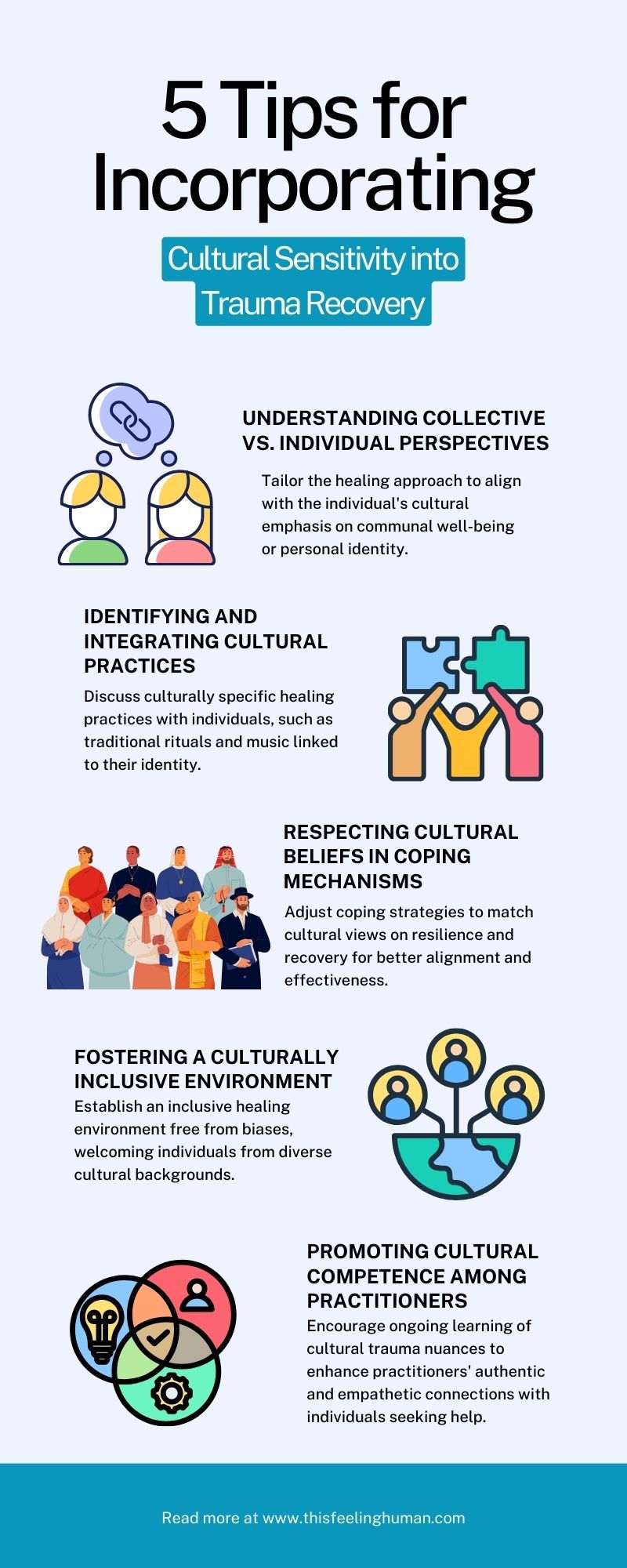The Crucial Role of Societal Understanding in Trauma Healing
- TFH

- May 22, 2024
- 4 min read
Updated: Aug 7, 2024
Society's grasp—or lack thereof—of trauma's intricacies plays a pivotal role in the healing journey of its members. Societal norms and stigmas surrounding trauma directly impact individuals' willingness to seek help and the types of support deemed accessible and acceptable. This part explores the importance of a society's collective understanding of trauma and how it shapes the healing environment.
Understanding Trauma for Collective Healing
Trauma has a profound impact on individuals, and societal perception and response to trauma can significantly influence the healing process. Understanding this connection can help everyone grasp its importance and contribute positively to healing efforts. Here's a simple breakdown of why societal understanding is crucial and some practical tips for creating a supportive environment for those affected by trauma.
To support individuals in navigating their emotional experiences, we’ve teamed up with The School of Emotions to promote their Emoli Cards. These cards reveal the underlying narratives and purposes of our feelings. Our Emotions-Based Coaching combines these insights with Calm3D for mood regulation and life coaching sessions, providing a comprehensive approach to emotional resilience. By enhancing societal understanding and offering practical tools, we aim to foster a more supportive environment for healing and personal growth. You may check out our bundled promotion here.
Simple Truths About Trauma and Society
1. Trauma is a Common Human Experience: Anyone can experience trauma; it isn't a sign of weakness. Acknowledging this fact can open doors to compassion and support.
2. Stigma Hurts: When society stigmatizes trauma, it can make people afraid to seek help. They may feel embarrassed or worried about being judged.
3. Supportive Environments Help Healing: In places where trauma is understood, people feel safer. They're more likely to get help and find the path to healing less daunting.
Easy Tips to Promote Trauma Understanding

1. Talk Openly About Mental Health:
Start conversations about mental health with friends, family, and colleagues. This can help make the topic less taboo.
2. Educate Yourself and Others:
Learn more about trauma and share your knowledge. Simple facts can help others see things differently.
Share articles, videos, and books that shed light on trauma and recovery.
3. Show Compassion:
Listen without judgment when someone shares their struggles with trauma.
Offer support and encouragement instead of advice.
4. Encourage Help-Seeking:
Promote the idea that seeking help is a strength, not a weakness. Share resources like therapy websites or support groups.
5. Support Local Mental Health Initiatives:
Attend or organize community events focused on raising awareness about mental health.
Support policies and programs that aim to improve mental health services.
6. Be a Role Model:
Show empathy and understanding in your daily life. Your behavior can influence others more than you might think.
By simplifying how we look at and talk about trauma, we can create a kinder, more supportive society where healing is a shared journey. Simple actions can lead to big changes, helping to weave a community fabric that holds everyone in times of need.
A Simple Way to Truly Be Yourself and Connect
Have you ever thought about how acting, something actors do on a stage or in movies, is more than just putting on a show? It's a cool way to get to know yourself better and even make a place for yourself in the world. Think of it like this: acting is using your body and emotions as a powerful tool to express yourself, understand others, and connect more deeply with the world around you.
Your Body, Your Voice
When you act, you're not just saying lines from a script. You're bringing a character to life with your entire body - your gestures, your facial expressions, and your movements. It's about being in the moment and showing how a character experiences life, just using your body. This whole process helps you become more aware of how you use your expressions and body language in everyday life.
Stepping Into the Spotlight
Acting gives you a special kind of space – a space where it's okay to explore different parts of who you are. When you're acting, you're center stage, and it's your time to shine. It's empowering because, for the moment, you're seen and heard in a way that's entirely yours. Plus, you get to play around with being someone else, which can be a fun and enlightening way to figure out more about yourself.

Growing Through Acting
Here's the magical part: by stepping into different characters, you learn a lot about real life. You might play someone going through a tough time, or someone who sees the world differently than you do, and this can teach you a lot about empathy, resilience, and understanding. It's kind of like getting a sneak peek into different life experiences without having to go through them all yourself.
Making Connections That Matter
When you act, you're sharing something special with your audience, whether it's one person or a hundred. It's a give-and-take; you’re not just performing, you’re sharing an experience. This connection can make people feel things deeply, and maybe even see the world a bit differently – and that's a pretty amazing power to have.
So, acting isn't just about putting on a costume or memorizing lines. It's a unique way to explore and express who you are, connect with others on a deep level, and even learn something new about the world and people around you. Whether on a big stage, in front of a camera, or just goofing around at home with friends, acting is a simple yet profound way to truly be yourself and take your place in this big, wide world.

Comments